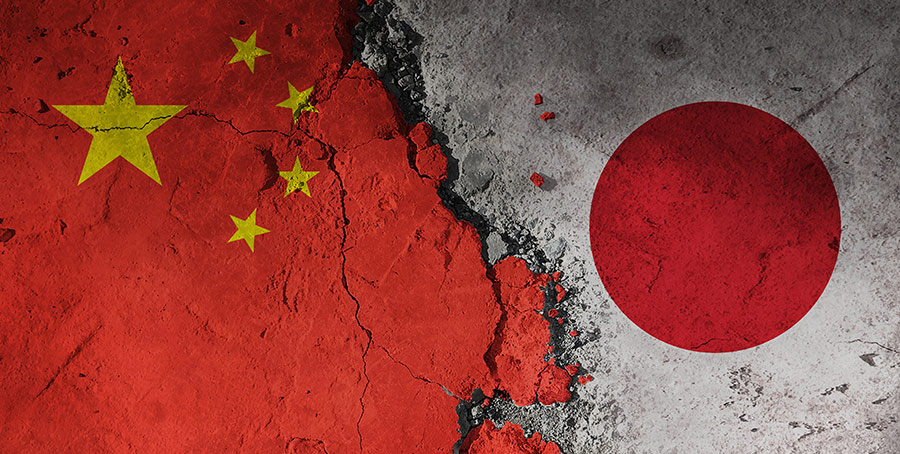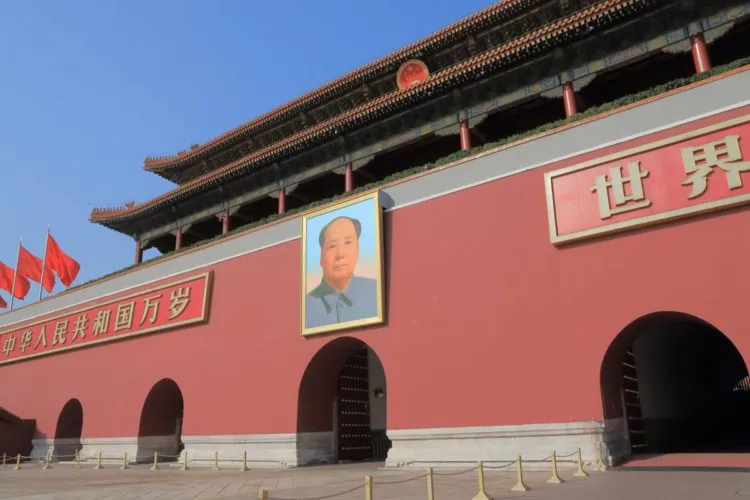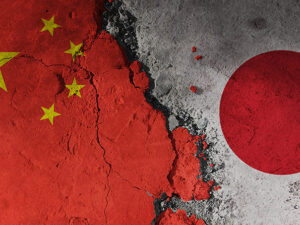The G7 Hiroshima Summit was successfully concluded on May 21, with President Zelensky’s surprise visit to Japan.

During this period, China hosted the China-Central Asia Summit, inviting five Central Asian countries, amid the 10th anniversary of the declaration of the “One Belt, One Road” initiative. The Chinese Foreign Ministry also expressed “intense dissatisfaction and firm opposition” to the G7 joint statement’s coverage of the Taiwan Strait issue and human rights issues in Xinjiang, Tibet, and Hong Kong, saying that it “undermines regional stability and suppresses the development of other countries,” and issued a stern request to Japan and other countries.
Against this backdrop, the G7, in its economic security session, focused primarily on rules and frameworks among like-minded countries, with China in mind, including (1) strengthening supply chains and backbone infrastructure, (2) strengthening responses to non-market policies and practices and economic intimidation, and (3) appropriate management of critical and emerging technologies, We confirmed that we will respond in a cohesive manner.
And, focusing on preventing the outflow of critical and emerging technologies, they said they would work together to prevent the outflow of advanced technologies and their use for military buildup that threatens international peace.
It is a well-known fact that Japan has a large number of companies, universities, and research institutes that possess advanced technology and know-how, but are targeted by other countries that seek to improperly obtain such technology and know-how to strengthen their own industries or convert it to military technology. The Public Security Intelligence Agency indicates
Seven Paths of Technology Leakage
As a recent example of technology leakage in Japan, it was reported that a Chinese male engineer working for a domestic electronics manufacturer was investigated by the police authorities for illegally taking information on smart agriculture in 2022, in violation of the Unfair Competition Prevention Law.
The Chinese male, who was a member of the Chinese Communist Party and had contacts with the Chinese People’s Liberation Army, had sent the information to two acquaintances of the company in China via social networking sites.
Outside of the United States, on May 16, the U.S. Department of Justice announced a “strike force” initiative aimed at preventing state-level adversaries such as China, Iran, Russia, and North Korea from acquiring sensitive U.S. technology and using it for military purposes or human rights abuses. The company announced that it had brought five criminal prosecutions for export control violations and other violations as a result of the “Strike Force” initiative.
Two of the five cases involved the acquisition of sensitive technology for the Russian military, intelligence, or airline companies in violation of U.S. export control orders, resulting in three arrests.
In another case, a former Apple engineer of Chinese nationality was suspected of stealing a large amount of documents containing source code related to the company’s self-driving technology, but he has already left the country.
Both domestically and internationally, especially in China and Russia, there are active espionage activities that attempt to steal technology on a regular basis.
The Public Security Intelligence Agency’s “Toward Ensuring Economic Security 2022” describes the following channels of technology leakage.
(1) Investment and acquisition
(2) Illicit procurement
(3) Sending of foreign students and researchers

- joint research/joint projects
Recruitment of human resources
Intelligence activities
Cyber-attacks
The National Police Agency and the Ministry of Economy, Trade and Industry (METI) have been actively conducting outreach activities regarding these leakage routes, and private companies have become aware of them.
The following is an explanation of illegal and legal means. All cases other than those publicized by investigative agencies are cases that I have recognized in the private sector. Cases in Japan
Illegal” Technology Leakage in Japan
(1) Technology Leakage through Intelligence Activities (Russia/Telecommunications Business)
In January 2020, the Public Safety Department of the Tokyo Metropolitan Police Department arrested a former Softbank employee for violating the Unfair Competition Prevention Law. The employee illegally accessed the internal Softbank server where he worked and passed information on the company’s telephone base station installation and other information to Kalinin, former deputy representative of the Russian Trade Representative in Japan. Kalinin was a member of “Line X,” a team responsible for collecting information on science and technology in the Foreign Information Agency (SVR).
In addition, in July 2022, a male employee of the Russian Trade Representative in Japan was reportedly in contact with employees of several semiconductor-related companies in Japan, and the Public Safety Department of the Tokyo Metropolitan Police Department alerted the companies.
In addition, the investigative authorities must make full use of the application of crimes such as theft and the Unfair Competition Prevention Law, for which the statutory penalties are not so severe, and then arrest the suspects once they meet the requirements for constituting a crime and the charges are solidly established. The SoftBank case is a case of Russian espionage.
The Softbank case is a classic example of espionage by Russian agents. Although the Japanese Foreign Affairs Police managed to build a case by showing their fundamental capabilities, the nature of intelligence cases (difficulty and sensitivity in building a case) means that only a very limited number of cases can be made into a case.
In China, an employee of Sekisui Chemical was arrested for violating the Unfair Competition Prevention Law after leaking information on liquid crystal technology to a Chinese company official who contacted him via Linkdin, a social networking service.
There are many more cases of espionage in the private sector than I had imagined.
(2) Leakage of information when changing jobs (China/defense-related information)
In this case, we were asked by Company A to investigate the possibility that defense-related information had been taken to a new company.
In this case, we used “digital forensics” technology to recover and analyze the contents of items loaned to the subject (PCs, smartphones, etc.), and we also used an outside vendor to investigate the subject’s activities, including his friendships, especially the fact that he took the information to his new employer.
However, in the course of the extensive investigation, including SNS analysis, relationships with a person in the Chinese Communist Party (Mr. X, who has close ties with the Chinese state media) emerged in various respects, and the possibility emerged that the defense-related information taken out by the subject subsequently passed to Mr. X via several people. This is the result of tracing the route of SNS analysis mainly used in Mr. X’s country, identification of related persons based on information from local corporations, and information from local collaborators.
In this way, there are cases where the Chinese shadow lurks in the background, even when information is simply taken out of a company when a person changes jobs.
What happened in Japan
Examples of Technology Leakage through “Legal Means
(1) Example of information leakage via establishment of a joint venture (China/manufacturing industry)
Company B was urged to expand into China by a Chinese businessman in Japan whom the representative met at an executive exchange meeting.
He and this Chinese businessman in Japan hit it off in the niche field of expertise that he had majored in at university.
In the joint venture with the Chinese company, Company B took the position that it would not share the latest technology with the joint venture partner, but due to weak governance at Company B, a Japanese employee of Company B took out sensitive information when providing technical guidance to the local company and passed the same information to the local engineer, resulting in the technical information being shared locally.
As a result, the technical information was shared locally. Company B’s business in China was sluggish and the joint venture was dissolved, but the technical information remained in the local market.
(2) Example of information leakage via investment and acquisition (China/various industries)
A domestic Z fund accumulated funds and proceeded to acquire a number of long-established Japanese companies related to the manufacturing industry.
However, in reality, a Chinese man under the influence of the Chinese Communist Party was in the background, and the Z Fund was partially pursuing acquisitions in accordance with the wishes of the Chinese man.
As a result of the acquisition, the technology and know-how within the Japanese company fell into the hands of the Chinese man.
There are indeed many cases like this where China lurks in the background and uses Japanese and Taiwanese companies as front companies for acquisitions.
On the other hand, in such economic activities, unlike espionage cases, it is possible to collect information on background relationships and visualize questions and concerns through open source analysis (OSINT).
In addition, small and medium-sized enterprises suffering from a lack of successors are the most likely targets of such investments and acquisitions.
(3) Information Leakage via Foreign Students (China/University and Research Institution)
A Chinese student named Mr. T was engaged in research in the field of engineering at a certain university.
However, Mr. Y, another foreign student who was close to Mr. T, was working closely with the Chinese Embassy, and through Mr. Y’s intermediary, Mr. T began attending parties of the Chinese Embassy’s Education Office and dining with the Embassy staff.
However, it is believed that the university was unaware of Mr. T’s friendships, and Mr. T continued his research while building relationships with people close to the Chinese Communist Party before returning to Japan.
After returning to Japan, he took a job at a major Chinese company that is feared to have ties with the Chinese People’s Liberation Army. Although it is impossible to determine whether or not technology has leaked out of the company, the risk is very high.
Although Japan’s Foreign Exchange and Foreign Trade Law has been revised and deemed export controls* have been introduced, as in the aforementioned case, there is a pattern in which a person comes under the strong influence of the state after returning to Japan, making it extremely difficult to deal with such cases.
() Deemed export control is a system to control transactions in Japan that are intended to provide certain sensitive technologies to “non-residents. Incidentally, foreign students from China studying abroad are called “sea turtles. Even if they initially have good intentions, they may later be compelled to follow the instructions and provide information due to direct instructions from the Chinese authorities or contact through student organizations, etc., but this is also against the background that cooperation in the country’s intelligence activities is obligatory under China’s National Intelligence Law. And the Chinese authorities sometimes give spying assignments to officials of communities such as the Fellowship of Chinese Students, and in return, offer them employment in major companies and research institutions after they graduate from college. Furthermore, there is a pattern in which people affiliated with the Chinese People’s Liberation Army are sent to universities, research institutes, and companies in various countries, but Japanese subsidiaries in China that have infiltrated Japanese universities and other institutions affiliated with universities involved in Chinese national defense Japanese subsidiaries in China may also be targets. Technology leakage does not only take place in Japan. Japanese subsidiaries (Japanese companies) may become targets and Japanese technology may be leaked. In particular, the following points should be noted with regard to China. (1) Domestic production policy As was noted in the case of printers (MFPs), China is demanding that foreign companies design and produce their products locally, and if they refuse to do so, China will shake them down by removing them from government procurement. Under such conditions, companies are forced to choose whether to locate all functions from design to manufacturing in China or to keep their distance from the Chinese market. (2) Measures to Encourage Foreign Investment As pointed out in the European Chamber of Commerce and Industry report, China will attract foreign firms with technologies and know-how that it wants to acquire on a priority basis. In areas where China is weak, the Chinese government will provide generous support to foreign-invested enterprises in order for China to become more competitive and independent in the future. Next, if the field grows and foreign-invested firms are able to switch to Chinese firms even if they withdraw from the field, the Chinese government will remain silent on the matter. If China acquires competitiveness in this field, it will treat foreign-invested firms cold and exclude them from the market. (3) Various other laws and regulations Using the recent Astellas case of a Japanese man being held hostage by China as an example, there are a number of laws that may be arbitrarily applied in China, and we would like you to thoroughly check their contents. Specifically, the following four laws are listed. The revised Anti-Spying Law (effective in July, and is expected to be expanded from application to “persons” to “companies”) National Security Law and National Defense Mobilization Law National Intelligence Law National Intelligence Law, National Defense Mobilization Law, China Company Law, etc. There is a good possibility that the law will be extended from “people” to “companies” in the future. So far, we have introduced some examples of technology leakage in the context of economic security. The introduction of a security clearance system is currently being discussed under the leadership of Sanae Takaichi, Minister of State for Economic and Security Affairs, and is a very important system in terms of establishing a close and deep information sharing = COLLINT system () with allied countries.
(*) COLLINT (Collective Intelligence) refers to the sharing of intelligence among organizations with common interests.
On the other hand, what can we do as a company and as a society?
First, we need to know the actual situation.
If companies are unaware of the actual state of technology leakage, they will let technology leak out without any hesitation, and in some cases, they will not even notice the technology leakage. Even if they receive information, they will be unaware of it and will not be able to take action because they will not be able to provide intelligence. It is important to have the intelligence to be able to imagine what could happen from the beginning to the end.
The next step is to foster a sense of counterintelligence in society.
Counterintelligence means counter-intelligence activities, which are activities to prevent the leakage of confidential information to the outside world in response to external intelligence activities. It is often used as a counter-intelligence activity, but as we have explained, intelligence activities are not the only route for technology leakage.
Finally, it is important to form a counter-intelligence community in the private sector.
Rather than leaving it up to the government, companies should take responsibility for improving their intelligence and fostering awareness, and if such companies form an intelligence community among themselves, it will lead to the sharing and collaboration of high-quality intelligence and know-how for the protection of society.
The world is currently in a state of great change, and the international environment surrounding Japan is becoming increasingly severe. In the area of economic security, not only the government but also the private sector and society must work together to protect Japan’s technology and know-how.
(Yu Inamura, Representative Director, Japan Counter Intelligence Association)









